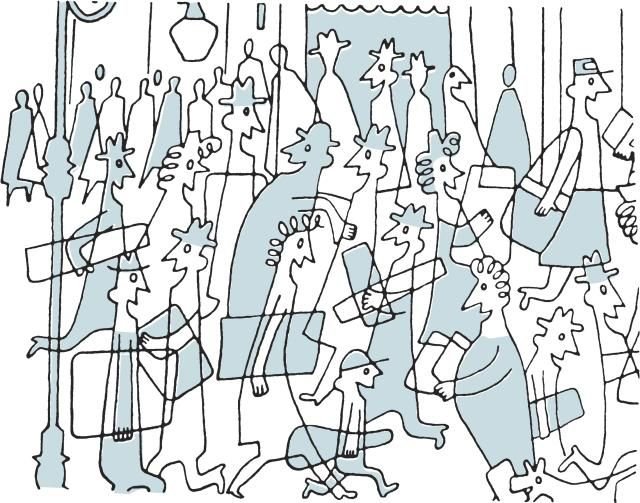Basic sociopsychological phenomena. Nature, varieties and interrelations /part 5/
Psychological effects of socialization are psychological phenomena, testifying to the extent and depth of socialization. Enumeration of these effects is sufficiently diverse. Some people points out socialization as the effects of social attitudes, complex phenomena related to the motivation of activity, and the formation of certain traits of character, including socially typical and nationally typical.
Although the characteristic of each such list relies on the perception of personality, for its signs and essential features in the problem itself, a very important aspect of the social psychology is identified, namely the inclusion in the process of socialization not only the microenvironment for the formation of the personality, but also the big social groups in which the personality lives. The mechanisms for realizing socialization are: - imitation - through which the external experience becomes the possession of the individual by copying; - identification - through it the entrant is likened to it or something because of the attractiveness of the model; - initiation - reflects the transition from one status to another; - persuasion - rational acquisition of skills through evidence, arguments; - suggestion - irrational acquisition of skills through intuition and subconsciousness; - instructions - intuition for action. It has been found that most of human behavior is under the influence of guidance.
To clarify the status of this phenomenon of social adaptation, let's take a look at what this adaptation is. Comes from the Latin word adapto - I adapt. It means adapting the structure and functions of the organism, its organs and cells to the environment. Changes that lead to the adaptation process affect all levels of the body. Social adaptation is the process of actively adapting the individual to the conditions of a new life situation. The sociopsychological content of the process is a convergence of goals and values of the group and the individuals involved in it, assimilating certain norms and traditions, by entering the group's role structure. The theoretical interpretation of adaptation is largely unclear and unsatisfactory. It is traditionally assumed that the adaptation of the individual has only one direction - the degree of correspondence between him and the environment. However, this conception is limited because there is no unambiguous understanding of what compliance is, and because the lack of matching between certain environmental requirements and certain human qualities still does not mean a lack of adaptation.
People are able to use other qualities and resources to compensate for some deficiency. Man responds to the circumstances of the environment and adapts to them to the extent that he interprets them according to their inner attitudes. Adaptation is mediated by the subjective perception of situations in the environment. Therefore, when thinking about adaptation to the environment, it is necessary to take into account not only its objective characteristics, but also the concrete person with its psychological peculiarities and built behavioral repertoire. The truth is that every person sees what he is up to and does according to his subjective picture.

This post has received a 5.43 % upvote from @boomerang.